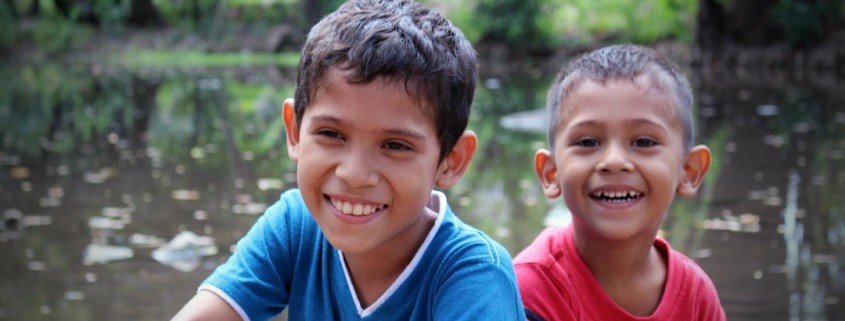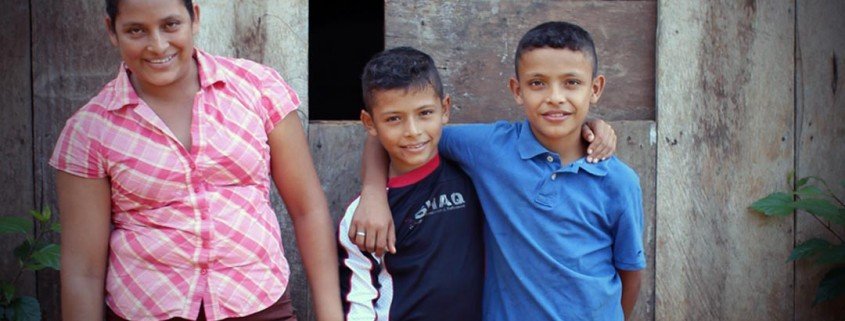Fresh water for two brothers
After driving out of Teustepe, (a town in Northern Nicaragua), for 45 minutes on a rocky path and crossing a couple dry rivers, we finally arrived in the small, dusty village of Agua Caliente. The landscape looks bleak due to the past two years of drought. A few underdeveloped crop fields are visible through the breaks in the trees.
Two small boys were among the first to run up to the pick up truck to greet us. Jose and Joan were soon met by more children who walked with us to the small unpainted quarry block house.


